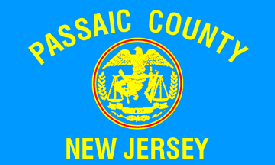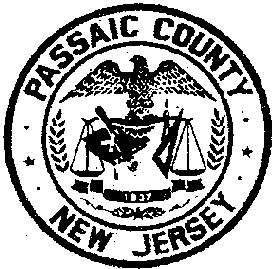
![]()
Although there has been a realization of the ineffectiveness of home rule, it persists to the extent that it has been forcing people and businesses out of the state because of the tax burden. It also creates financial hardship on many people who choose to stay in New Jersey. It is essential to be aware of what home rule is and the impact that a reliance on home rule has on property taxes.
![]()
Tax Burden Imposed By Home Rule Drives People Away
~ LOUISE RISCALLA
Home News Tribune Online
New Jersey has the highest property taxes in the country. It was reported that property taxes are an average of $5,900 per home before any rebates and continue to rise. The time has come when people are insisting they can no longer afford these high taxes, and want the governor and lawmakers to do something about it.
Although there has been a realization of the ineffectiveness of home rule, it persists to the extent that it has been forcing people and businesses out of the state because of the tax burden. It also creates financial hardship on many people who choose to stay in New Jersey. It is essential to be aware of what home rule is and the impact that a reliance on home rule has on property taxes.
Home rule has been a system of government since the 1600's. The Home Rule Act of 1917 gave municipalities the ability to tax, have their own police and fire departments, school system, and to provide for local welfare and health. Home rule is a policy and procedure for taxation. New Jersey has 566 municipal and 21 county governments, 616 school districts, 478 police departments, 186 fire districts, and the state bureaucracy. For many years there have been concerns about the rapid spread of municipal government and viability of home rule. For example, in 1931 a number of residents became concerned about the proliferation of local government because of the large number of towns. The Commission to Investigate County and Municipal Taxation and Expenditures stated that there was a duplication of services and municipalities were providing services that were no longer efficient. In 1967 the late Mayor Louis Bay II of Hawthorne, then president of the New Jersey State League of Municipalities, stated his concerns about the viability of home rule. The February 1988 issue of New Jersey Monthly magazine reported that former governor Brendan Byrne said home rule drives practically every political decision in the state and called home rule ". . . a religion in New Jersey."
Municipalities depend on property taxes to pay their bills. The only way to pay for the persistent increase in municipal and school spending is to increase property taxes, create more land, or develop existing land into tax ratables such as office buildings, shops, housing developments, etc. Development of the land into ratables can promote congestion and sprawl. Every square inch of New Jersey seems to be incorporated by a specific municipality, so that municipalities can't expand its territory. Some municipalities may run out of land to be developed, resulting in even higher taxes. Poor planning is a byproduct of home rule.
At one time local government and emergency services were composed of volunteers. Volunteerism has declined in favor of a reliance on full-time employees, many of whom are trained professionals, to handle local government jobs. Home rule creates many jobs and a lot of people can profit from home rule. A high-priced town administrator, administrative assistants, consultants, planners, lawyers, school administrators, etc., are hired by local governments and paid with money obtained from taxes. Many high-price administrators could retire early enough for a pension funded by taxpayers and then start a second career such as a consultant for a municipality, also paid by taxpayers.
If there were fewer municipalities, there would be fewer jobs and consulting opportunities, with the result of lower taxes. The long-standing inability to end home rule by consolidating local governments seems to be a combination of local politicians who want to preserve their principalities, labor unions that are paid to obtain benefits and increase salaries for their members, and partisan politicians who want to secure employment contracts for their relatives, friends and campaign contributors. As a consequence, home rule could be a breeding ground for corruption.
The state has provided financial incentives to get municipalities to share services and consolidate, which is an effective way to reduce property taxes. It was reported that Marc Holzer, a Rutgers University professor of public administration, said in his testimony before the Legislature's property tax committee that from 3 percent to 5 percent of the cost of government could be saved by sharing services. Counties, municipalities and schools spent approximately $20 billion in property tax dollars in 2005, so that there is a significant savings to residents by sharing services. A Monmouth University/Gannett New Jersey poll taken in July of this year found that almost 80 percent of the people interviewed were willing to share public works services with a neighboring town, 70 percent would merge fire and police departments, and 58 percent would consolidate school districts. There is an increasing willingness among municipal government officials, including Edison and other communities, to join in inter-local service agreements. There appears to be a growing recognition of the need to approach planning on a regional basis. It has been proposed that a regional approach be taken to air pollution, water and sewage treatment, and growth management because municipalities in and of themselves cannot deal with these areawide problems.
Now is the time to end the tax burden imposed by home rule that continues to drive people and businesses out of New Jersey and creates financial hardship for many of those who remain. It can be done. It is up to the politicians, lawmakers and residents to make it happen.
"Be Counted" columnist Louise Riscalla, Ph.D., is a resident of Edison. "Be Counted" columnists are members of the public. Their opinions are not those of the Home News Tribune.
Copyright © 2006 Home News Tribune. All rights reserved.
![]()
Send an e-mail message with a link to this article to anyone/everyone in your address book. Click on e-mail [envelope] icon, below |
![]()


































0 Comments:
Post A Comment